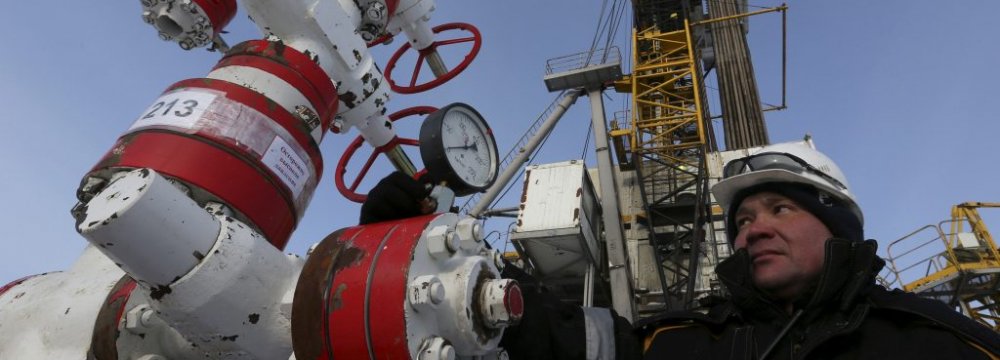
Russia Signals OPEC, Allies Should Raise Output

Dmitriev, head of the Russian state’s direct investment fund, was the first Russian official to predict a deal with OPEC in 2016 and since then became a key defender of the pact despite pressure from domestic oil firms to drop the agreement, Reuters reported.
Dmitriev, an envoy for Moscow in the Middle East in general and Saudi Arabia in particular, had in recent months said it was still too early to terminate output cuts, echoing the position of OPEC’s de-facto leader, Saudi Arabia.
But in an apparent change of position, Dmitriev said on Monday supply cuts may not be required after June.
“It is quite possible that given the improving market situation and falling stocks, OPEC and its allies could decide in June this year to abandon supply cuts and subsequently increase output,” he added.
“This decision will not mean the end of the deal but a confirmation that participants continue their coordinating efforts when it is important not only to cut but to increase output depending on market conditions,” he said.
Key Meeting
The Saudi energy minister, Khalid al-Falih, said on Monday it was premature to say whether a consensus existed among OPEC and its allies to extend oil supply cuts, but a meeting next month would be key.
A joint OPEC and non-OPEC ministerial committee known as the JMMC is due to meet in May. Saudi Arabia and Russia are members of the panel, which includes other major oil producers that took part in a global supply-cutting agreement last year, such as Iraq, the United Arab Emirates, Kuwait, Nigeria and Kazakhstan.
“JMMC will be a key decision point because we will certainly by then know where the consensus view is and, more importantly, before we ask for consensus, we will know where the fundamentals are pointing,” al-Falih, said.



Newmont nets $100M payment related Akyem mine sale

First Quantum scores $1B streaming deal with Royal Gold

Caterpillar sees US tariff hit of up to $1.5 billion this year

Gold price rebounds nearly 2% on US payrolls data

Copper price collapses by 20% as US excludes refined metal from tariffs

St Augustine PFS confirms ‘world-class’ potential of Kingking project with $4.2B value

B2Gold gets Mali nod to start underground mining at Fekola

Goldman told clients to go long copper a day before price plunge

Copper price posts second weekly drop after Trump’s tariff surprise

Codelco seeks restart at Chilean copper mine after collapse

US slaps tariffs on 1-kg, 100-oz gold bars: Financial Times

BHP, Vale offer $1.4 billion settlement in UK lawsuit over Brazil dam disaster, FT reports

NextSource soars on Mitsubishi Chemical offtake deal

Copper price slips as unwinding of tariff trade boosts LME stockpiles

SAIL Bhilai Steel relies on Danieli proprietary technology to expand plate mill portfolio to higher steel grades

Alba Discloses its Financial Results for the Second Quarter and H1 of 2025

Australia weighs price floor for critical minerals, boosting rare earth miners

Australia pledges $87M to rescue Trafigura’s Nyrstar smelters in critical minerals push

Fresnillo lifts gold forecast on strong first-half surge

US slaps tariffs on 1-kg, 100-oz gold bars: Financial Times

BHP, Vale offer $1.4 billion settlement in UK lawsuit over Brazil dam disaster, FT reports

NextSource soars on Mitsubishi Chemical offtake deal

Copper price slips as unwinding of tariff trade boosts LME stockpiles

SAIL Bhilai Steel relies on Danieli proprietary technology to expand plate mill portfolio to higher steel grades

Alba Discloses its Financial Results for the Second Quarter and H1 of 2025

Australia weighs price floor for critical minerals, boosting rare earth miners

Australia pledges $87M to rescue Trafigura’s Nyrstar smelters in critical minerals push

Fresnillo lifts gold forecast on strong first-half surge














